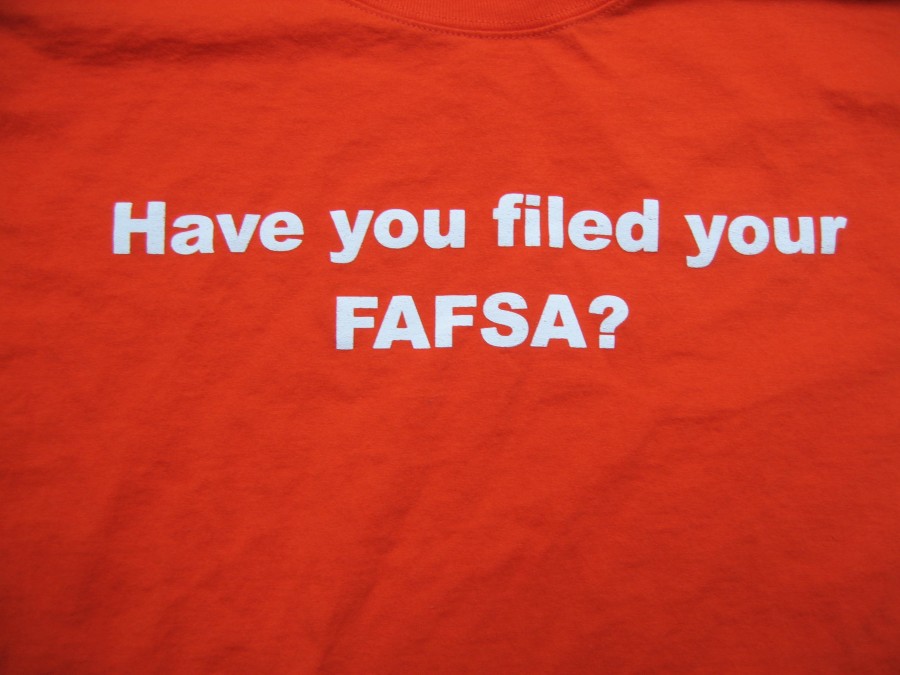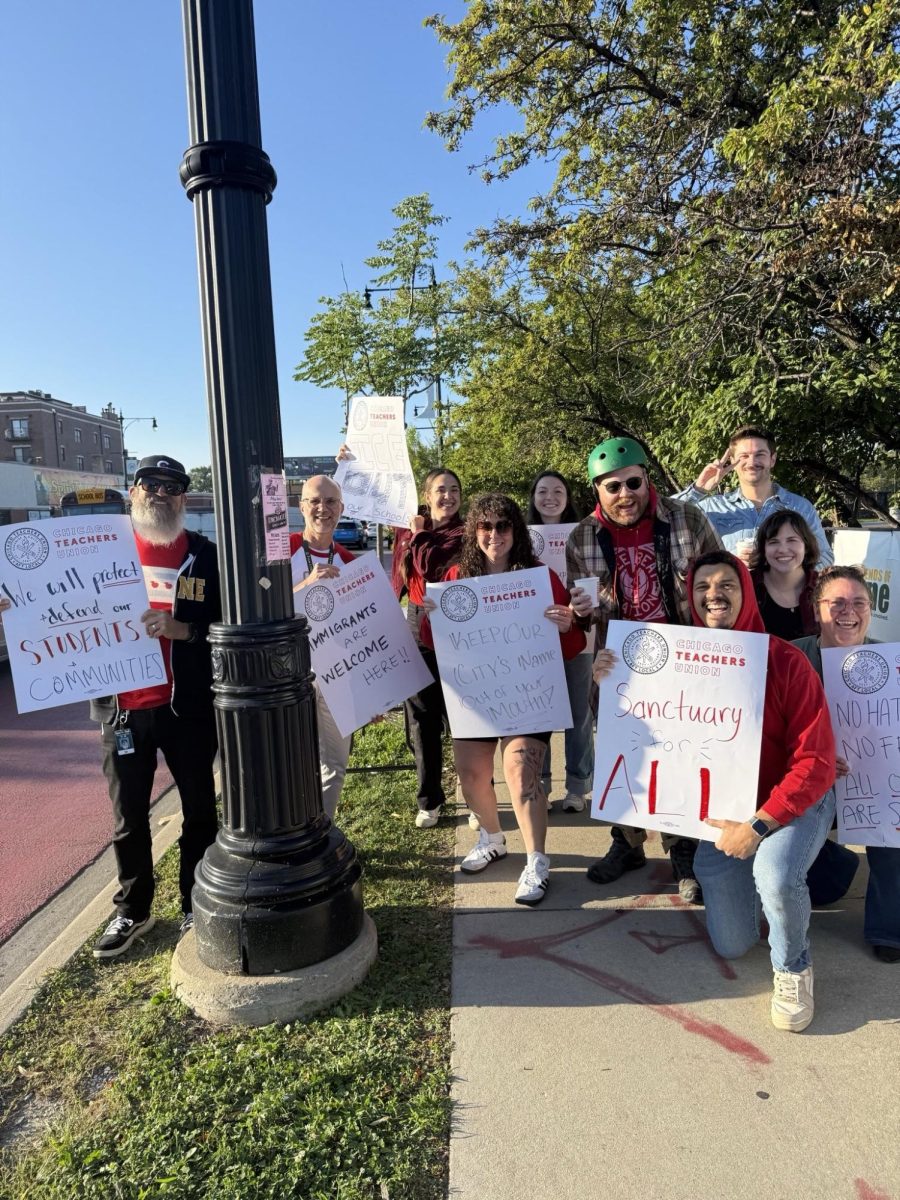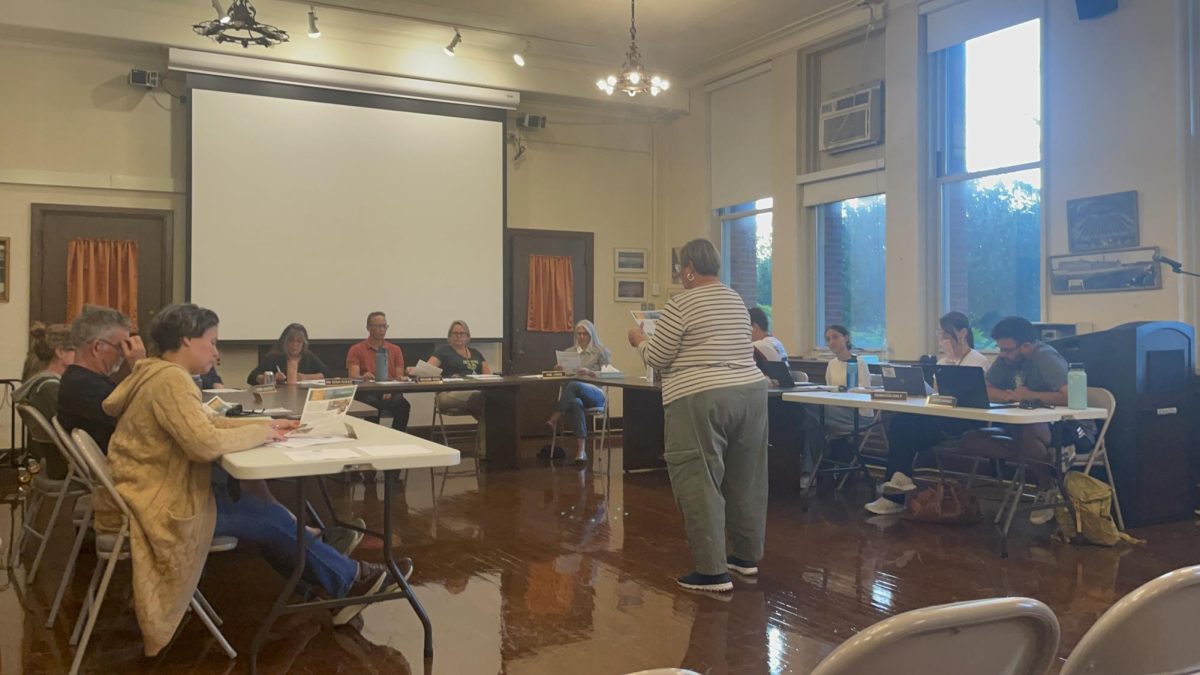Class of 2012 warned by Depaul financial aid officer that government funds for student aid have dwindled in tough economy
By Cherrell Anderson
& Dirce Toca
With questions and concerns rising about the FAFSA (Free Application for Federal Student Aid) process and how to pay for college, the director of financial aid at Depaul University in Chicago, Chris Rone, visited Lane on Jan. 10 to offer advice, directions, and even some tips to seniors so they can get the most out of financial aid.
The financial aid lecture took place in the auditorium during seniors’ English class period.
On Jan. 1, the FAFSA became available to those attending college in the 2012-2013 school year. While there is no real deadline to submit the FAFSA, Rone advised that students apply as soon as possible.
“Financial aid has changed greatly since 2005. The government is cutting back because there are too many people who need money,” said Rone. “If you submit your application after Mar.1, you could lose out on a lot of money.”
This news worried several Lane seniors.
“The assembly brought my hopes down when I heard that the government doesn’t have as much money (for financial aid) as it used to,” said Diana Jaimes, Div. 253.
Rone advised to take early action because colleges prepare financial aid awards by Mar. 15.
“If you submit your application after March 7, you could lose out on a lot of money,” Rone said.
FAFSA offers different types of financial aid, including gift aid and self help aid.
Gift aid is “free money” awarded based on any number of criteria (academics, achievements, hobbies, etc.), and grant aid based more on financial need. There is the MAP Grant from Illinois that gives up to $4,720 and the Pell Grant from the federal government.
“The Pell Grant awards $500 to $5,500 and only about 22 percent of students get it,” said Rone.
Self help aid includes work study options (on-campus jobs) and student loans such as:
· Subsidized Stafford Loans: given based on financial need, not required to pay interest rates.
· Unsubsidized Stafford Loans: more widely available than subsidized loans, required to pay interest rates.
· Parent Plus Loans: Parents of dependent children borrow money to pay for their education, credit check is required, loan is in parent’s name.
Rone also shared with the students Depaul’s policy on the maximum amount of money they can borrow that does not require a cosigning from a source of financial credit.
“As a freshmen, the maximum amount is $5,500, $6,500 sophomore year, and $7,500 your junior and senior year,” said Rone. “Any more loans you need will be credit based loans that give you an interest rate.”
Seniors were given some tips on how to get as much financial aid as possible.
“If you’re a student who barely got in to a [university or college], you’re not going to get as much [financial aid] as the student who’s in the top 20% of the class,” said Rone.
Rone also advised students who have been accepted to a school without a scholarship offer to be “extremely aggressive” with the financial aid office.
“Let [the financial aid office] know if you are a first generation college student or in a single-parent household to get more aid,” said Rone.
Some students had questions for Rone concerning financial aid, including whether financial aid covers schools outside of the United States.
“The easy answer would be no,” said Rone. “Some Canadian schools [are able to be covered by financial aid]. No schools in Europe are.”
For a list of every school in the world that is eligible for financial aid, Rone told the students to visit fafsa.ed.gov.
The financial aid assembly answered some questions and enlightened some of the seniors.
“Some students don’t know how to fill out their FAFSA if their parents are divorced,” said Rone. “Use your custodial parent’s information.”
“I didn’t know that [students] having a job in high school affects the financial aid,” said Mary Geyer, Div. 251.
Having a representative from Depaul pleased some students.
“Depaul is one of the universities I applied to, so [the assembly] was very helpful,” said Leslie Padilla, Div. 257.
If students have not submitted their FAFSA yet, they should apply online at fafsa.ed.gov. Students will need to apply for a PIN (a four digit number) at pin.ed.gov to electronically sign their application. A parent must also have a PIN to sign if the student is under 24 years old.




